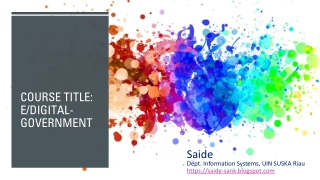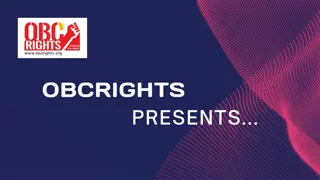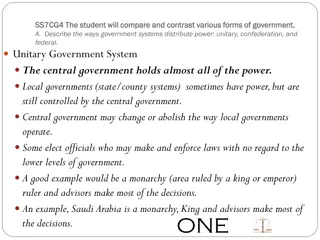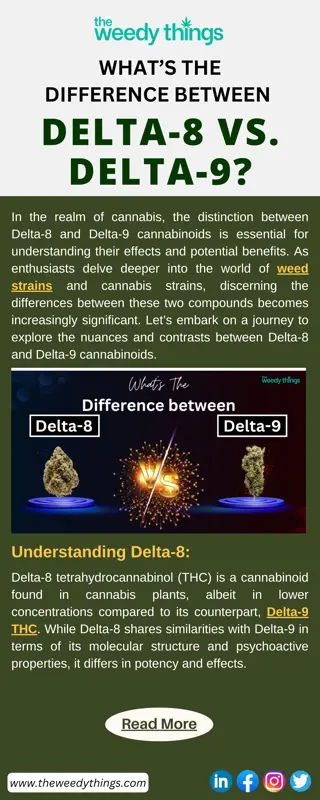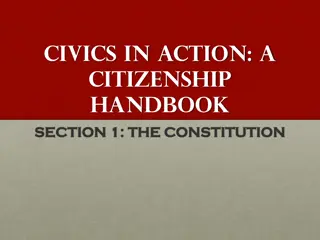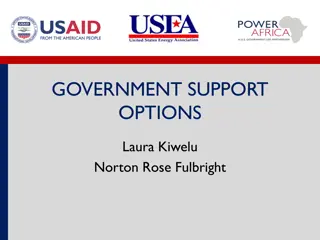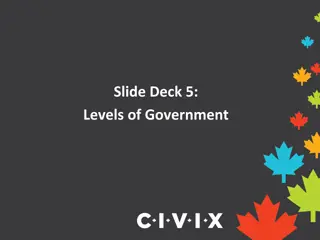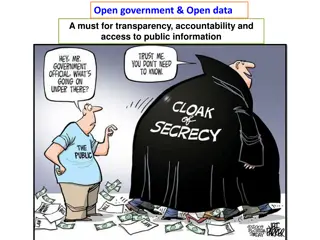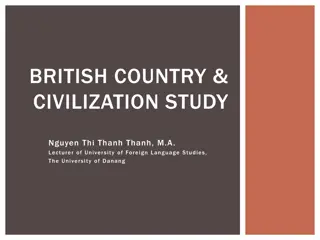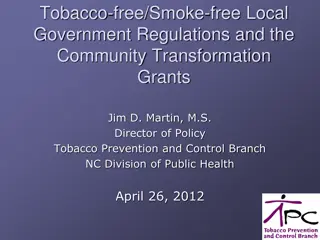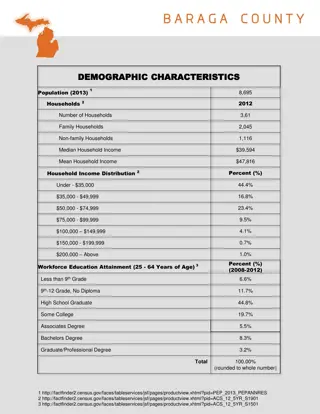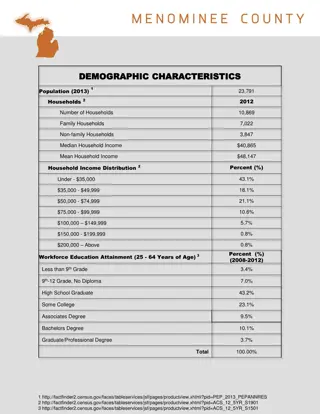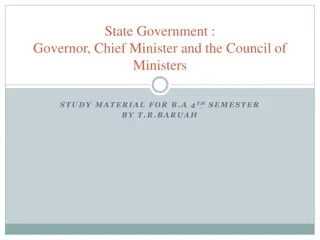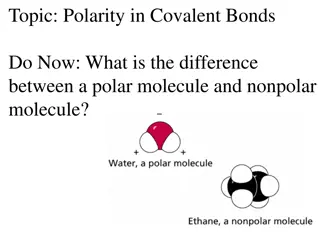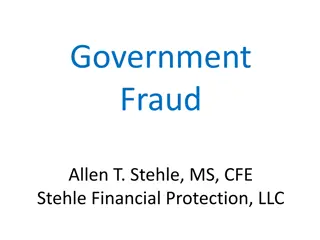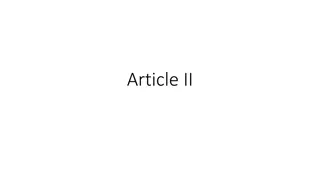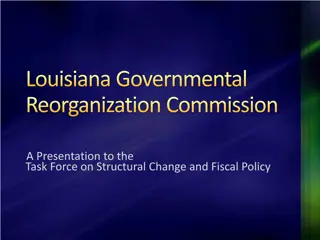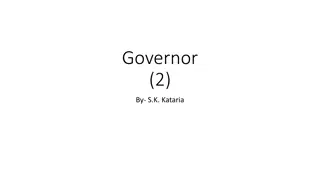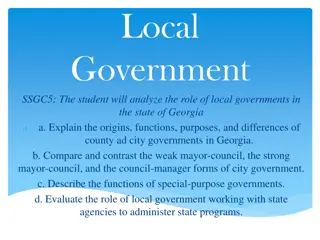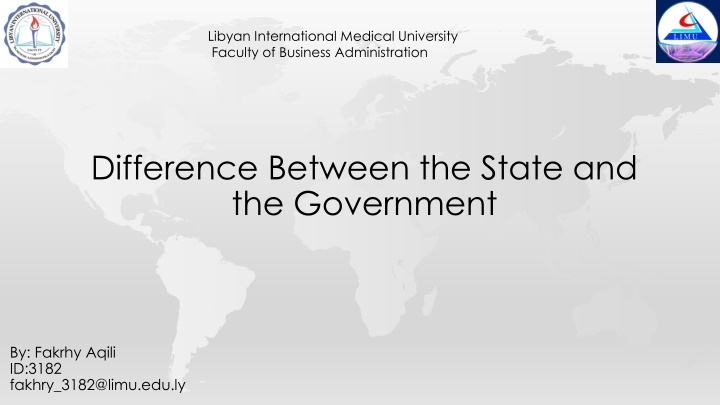
State vs Government: Understanding the Key Differences
Explore the fundamental disparities between a state and a government, where the state is described as a permanent entity while the government is temporary. Discover how the state encompasses a defined geographic area and culture, while the government formulates and executes policies for law and order. Delve into the essence of sovereignty and the essential elements that define both state and government.
Download Presentation

Please find below an Image/Link to download the presentation.
The content on the website is provided AS IS for your information and personal use only. It may not be sold, licensed, or shared on other websites without obtaining consent from the author. If you encounter any issues during the download, it is possible that the publisher has removed the file from their server.
You are allowed to download the files provided on this website for personal or commercial use, subject to the condition that they are used lawfully. All files are the property of their respective owners.
The content on the website is provided AS IS for your information and personal use only. It may not be sold, licensed, or shared on other websites without obtaining consent from the author.
E N D
Presentation Transcript
Libyan International Medical University Faculty of Business Administration Difference Between the State and the Government By: Fakrhy Aqili ID:3182 fakhry_3182@limu.edu.ly
Table of contents Introduction What is the state What is the state The mean of government Difference between state and government Conclusion References 1
Introduction Main Difference State vs Government Although the two terms state and government are commonly used as synonyms, there is a difference between them. Government refers to the group of authorized people who governs a country or a state. State refers to the organized political community living under a single system of government. The main difference between state and government is that state is more or less permanent whereas government is temporary. The death of a ruler or a defeat at an election can change the government. 2
WHAT IS THE STATE WHAT IS THE STATE A state is an entity that occupies a definite geographic area, has a certain culture, people, language history and the like. The term state is used to distinguish a certain territory from another one based on these factors. It is an independent and sovereign entity that can be distinguished from the other states and has certain administrative tasks to be carried out for its proper functioning. These administrative tasks are carried out by the government. This entity has the right to exercise power over the territory and the people. State is the territory in which the government can practice its authority. A state is like an organization and the government is like the management team. 3
THE MEAN OF GOVERNMENT Government is a body formally saddled to formulate and execute policies which ensures law and order in the state. The term include the sum total of the legislative, executive and judicial bodies in the state wither the central or subordinate government of all who are engaged in making, administrating and interpreting the law. 4
DIFFERENCE BETWEEN STATE AND GOVERNMENT 1. The State has four elements like population, territory, Government and sovereignty. Government is a narrow concept and it is an element of the State. It is rightly said the State is an organic concept in which the government is a part. Willoughby writes. "By the term government is designated the organization of the State machinery through which is designated the organization of the State machinery through which its purposes are formulated and executed. 5
DIFFERENCE BETWEEN STATE AND GOVERNMENT 2. The State is more or less permanent and continues from time immemorial. But the government is temporary. It changes frequently. A government may come and go, but the State continues for ever. Death of a ruler or the overthrow of a government in general elections does not mean the change of the State. 6
DIFFERENCE BETWEEN STATE AND GOVERNMENT 3. The State is generally composed of all citizens but all of them are not members of the government. The government consists of only a few selected citizens. The organ of the government consists of only a few selected citizens. The organs of the government are executive, legislature and judiciary. The few selected persons will run these three organs of the government. Thus, the State is a much broader organization than the government. Membership of the State is compulsory but not that of the government. 4. The State possesses sovereignty. Its authority is absolute and unlimited. Its power cannot be taken away by any other institution. Government possesses no sovereignty, no original authority, but only derivative powers delegated by the State through its constitution. Powers of government are delegated and limited. 7
CONCLUSION Lastly the citizens possess rights to go against, government and not against the State. The State only acts through the government and the government may commit mistakes and not the State. Thus, the citizens have only rights to go against the government. Moreover, the State consists of a citizen, the citizens go against the State, it will mean to go against themselves. This is an impossible proposition. The State is therefore, and indestructible union of citizens having the chief characteristic of permanence and continuity. Government is only a part of the State. 8
REFERENCES Igwugwum, C.-W. (1970, January 1). Distinguish between the state and: Government, nation and society. DISTINGUISH BETWEEN THE STATE AND: GOVERNMENT, NATION AND SOCIETY. Retrieved November 24, 2021, from https://chrisdonasco.blogspot.com/2013/12/distinguish- between-state-and.html. 1 Adamolekum, L (19 86} Politics and Administration in Nigeria, Ibadan: Spectrum Books Ltd. 2. government and its subordinates in The Journal of Pan African Studies Vol. 2 No 9, March pp 151-165. Adesoji, A.O and Alao, A (2009) the structure of the 9

